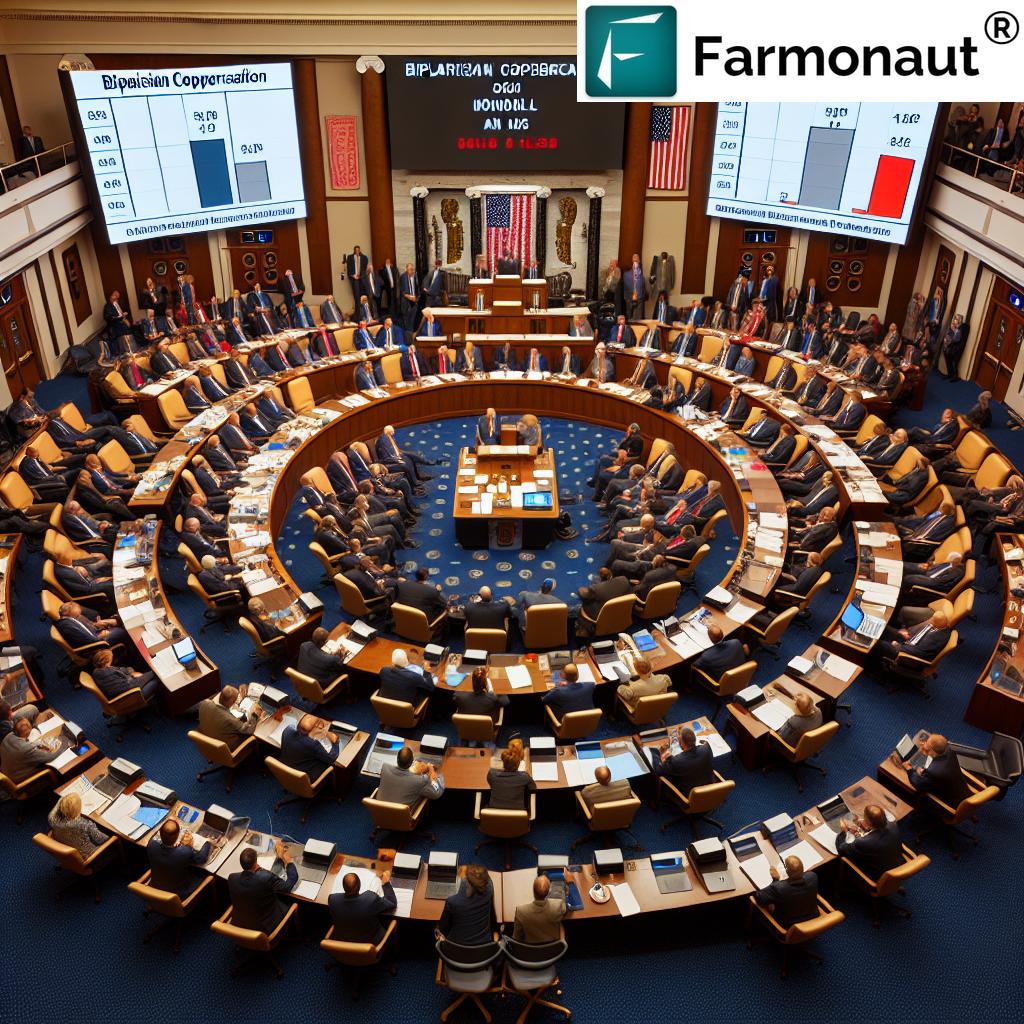Texas House Speaker Vote: Shaping the Future of Legislative Priorities and Bipartisan Politics in Austin
As we delve into the intricate world of Texas politics, we find ourselves at a pivotal moment that will shape the future of the Lone Star State. The upcoming Texas House Speaker vote stands as a testament to the evolving landscape of legislative priorities and bipartisan politics in Austin. This critical juncture not only reflects the ideological divides within the state’s GOP but also sets the stage for addressing key issues that will impact millions of Texans.

“Texas House Speaker vote impacts allocation of projected $32.7 billion budget surplus for 2023 legislative session.”
In this comprehensive analysis, we’ll explore the intricacies of the Texas GOP civil war, examine the pressing legislative priorities for 2023, and discuss how the outcome of this vote will influence bipartisan politics in Texas. From education reform to border security measures, we’ll uncover the complex web of issues that lawmakers must navigate in the coming session.
The Battle for the Speaker’s Gavel
The Texas House of Representatives finds itself at the center of a political maelstrom as two candidates vie for the position of Speaker: David Cook from Mansfield and Dustin Burrows from Lubbock. This intra-party conflict has exposed deeper fissures within the Texas GOP, pitting those who favor bipartisanship against staunch party loyalists.
- Cook’s initial claim of victory in a December Caucus meeting
- Burrows’ subsequent assertion of support from both Republicans and Democrats
- Intervention of prominent figures like Texas Attorney General Ken Paxton
The battle lines drawn in this Speaker race reflect a broader ideological struggle within the party. Cook’s supporters advocate for limiting Democratic influence in House committees, while Burrows emphasizes the importance of inclusive representation. This stark contrast in approaches has ignited what many are calling a “GOP civil war” in Texas politics.
Legislative Priorities in the Spotlight
As the Speaker vote looms, several key legislative priorities have emerged as focal points for the upcoming session:
- Border Security: A top concern for state GOP leaders, including Party Chairman Abraham George
- Public Education Reform: Addressing challenges in the Texas education system
- Property Tax Reform: Tackling rising appraisals and insurance costs
- Economic Issues: Managing the state’s finances and potential budget surplus
These priorities will shape the legislative agenda and have far-reaching implications for Texans across the state. The outcome of the Speaker vote will undoubtedly influence how these issues are approached and addressed in the coming session.
The Budget Surplus: A Game-Changer for Texas Politics
One of the most significant factors influencing the upcoming legislative session is the projected budget surplus. State Comptroller Glenn Hegar is preparing the Biennial Revenue Estimate, which is expected to show a substantial financial windfall for Texas.
“Over 150 Texas House Representatives will vote on new Speaker, shaping future of state’s $288 billion budget.”
This projected surplus of $32.7 billion opens up new possibilities for ambitious policy initiatives, particularly in the realm of education. Governor Abbott has expressed strong support for education savings accounts, a program that could revolutionize the state’s approach to schooling. However, the implementation of such programs is not without its challenges and skeptics.
As we consider the potential impact of this budget surplus, it’s worth noting that innovative technologies are playing an increasingly important role in various sectors, including agriculture. For instance, Farmonaut, a pioneering agricultural technology company, offers advanced satellite-based farm management solutions that could potentially benefit from increased funding in the agricultural sector. Learn more about their services at 
The Role of Investigative Journalism in Shaping Policy
Investigative journalism has emerged as a powerful force in shaping legislative responses to pressing social issues in Texas. Recent investigations have shed light on various concerns:
- Safety issues at medical facilities
- Accountability in educational settings
- Deaths resulting from negligence in various institutions
These investigative reports have prompted lawmakers to file bills aimed at addressing identified shortcomings. Key legislative proposals include:
- Measures to enhance safety at hospitals
- Increased transparency in hiring practices for schools
- Modernization of the state’s approach to death investigations
The impact of these investigations underscores the importance of a free press in maintaining accountability and driving policy changes. As we move forward, the interplay between journalism and legislation will continue to shape the political landscape in Texas.

Bipartisan Politics at a Crossroads
The upcoming Speaker vote and the ensuing legislative session will serve as a litmus test for bipartisan politics in Texas. As the state grapples with increasingly complex challenges, the need for collaboration across party lines becomes more crucial than ever.
However, the growing polarization within the Texas GOP presents a significant obstacle to bipartisan cooperation. The outcome of the Speaker vote will set the tone for how the House approaches critical issues and whether compromise can be achieved in an increasingly divided political landscape.
To better understand the potential impact of the Speaker vote on various policy areas, let’s examine the following comparative table:
| Legislative Priority | Current Status | Potential Future Direction |
|---|---|---|
| Education Reform | Ongoing debates over funding and curriculum | Possible implementation of education savings accounts; increased focus on vocational training |
| Border Security | Heightened state involvement in border control measures | Potential for more aggressive policies or shift towards federal collaboration |
| Property Tax | Rising concerns over increasing property values and tax burdens | Possible caps on property tax increases; exploration of alternative revenue sources |
| Healthcare | Ongoing challenges with access and affordability | Potential expansion of telemedicine; focus on rural healthcare improvements |
As we can see, the direction of these key policy areas hangs in the balance, with the Speaker vote potentially tipping the scales one way or another.
The Intersection of Technology and Governance
As Texas lawmakers grapple with these pressing issues, the role of technology in governance and policy implementation cannot be overlooked. From improving emergency services to enhancing data management in various departments, technological advancements are reshaping how the state operates.
For instance, in the agricultural sector, companies like Farmonaut are leveraging satellite technology and AI to revolutionize farm management. Their innovative approach could serve as a model for how technology can be integrated into other areas of state governance. Explore their solutions at Farmonaut API and API Developer Docs.
As we look to the future, the integration of technology in areas such as:
- Education (e-learning platforms)
- Healthcare (telemedicine services)
- Public safety (advanced data analytics for law enforcement)
- Transportation (smart city initiatives)
will likely play a significant role in shaping policy decisions and implementation strategies.
The Road Ahead: Challenges and Opportunities
As Texas lawmakers prepare to convene, they face a complex political landscape shaped by partisan conflict, pressing state priorities, and the influence of investigative reporting. The outcome of the Speaker vote will set the tone for the legislative session and potentially define the Texas House’s political landscape for years to come.
Key challenges that lie ahead include:
- Balancing bipartisanship with party loyalty
- Addressing the diverse needs of a rapidly growing and changing state
- Managing the budget surplus responsibly
- Implementing effective solutions for border security and education reform
- Navigating the complexities of property tax reform
However, with these challenges come opportunities for meaningful change and progress. The projected budget surplus provides a unique chance to invest in critical areas such as infrastructure, education, and healthcare. Moreover, the increased focus on technological solutions opens up new avenues for improving state services and operations.
The Importance of Civic Engagement
As Texas stands at this critical juncture, the importance of civic engagement cannot be overstated. The decisions made in the coming legislative session will have far-reaching implications for all Texans, making it crucial for citizens to stay informed and involved in the political process.
Ways for Texans to engage include:
- Staying informed about legislative developments
- Contacting their representatives to voice concerns and opinions
- Participating in local town halls and community meetings
- Supporting investigative journalism that holds power to account
By actively participating in the democratic process, Texans can help shape the future of their state and ensure that their voices are heard in Austin.
Conclusion: A Pivotal Moment for Texas
The upcoming Texas House Speaker vote represents more than just a political contest; it’s a defining moment that will shape the future of legislative priorities and bipartisan politics in Austin. As we’ve explored in this comprehensive analysis, the outcome of this vote will have far-reaching implications for key issues such as education reform, border security, property tax reform, and the allocation of the state’s budget surplus.
The challenges facing Texas are complex and multifaceted, requiring thoughtful, collaborative solutions. Whether it’s leveraging technology to improve governance, addressing pressing social issues highlighted by investigative journalism, or navigating the delicate balance of bipartisan cooperation, the path forward demands vision, leadership, and a commitment to serving the diverse needs of all Texans.
As we look to the future, it’s clear that the decisions made in the coming legislative session will play a crucial role in determining Texas’s trajectory for years to come. By staying informed, engaged, and committed to the democratic process, Texans can help ensure that their state continues to thrive and lead in an ever-changing world.
FAQ Section
Q: What is the significance of the Texas House Speaker vote?
A: The Speaker vote will determine the leadership of the Texas House of Representatives, influencing legislative priorities, committee assignments, and the overall direction of state policy.
Q: How does the projected budget surplus affect Texas politics?
A: The $32.7 billion surplus provides opportunities for significant investments in areas like education, infrastructure, and healthcare, but also sparks debates on how to allocate these funds responsibly.
Q: What are the key legislative priorities for the 2023 session?
A: Key priorities include border security, public education reform, property tax reform, and managing the state’s finances.
Q: How is investigative journalism impacting Texas politics?
A: Investigative reporting has shed light on various issues, prompting lawmakers to propose bills addressing safety in hospitals, transparency in schools, and modernizing death investigations.
Q: What role does technology play in Texas governance?
A: Technology is increasingly important in areas like emergency services, data management, and policy implementation. Companies like Farmonaut demonstrate how tech can revolutionize sectors such as agriculture.
As we conclude this in-depth exploration of Texas politics, it’s worth noting that innovation and technology will play crucial roles in addressing the state’s challenges. For those interested in how technology is transforming agriculture, a sector vital to Texas’s economy, consider exploring Farmonaut’s solutions:
Earn With Farmonaut: Affiliate Program
Earn 20% recurring commission with Farmonaut’s affiliate program by sharing your promo code and helping farmers save 10%. Onboard 10 Elite farmers monthly to earn a minimum of $148,000 annually—start now and grow your income!















